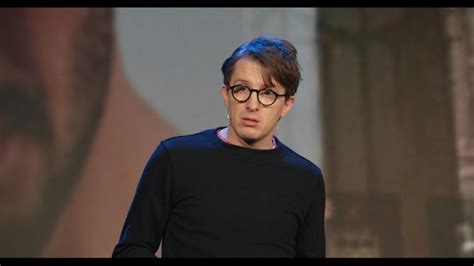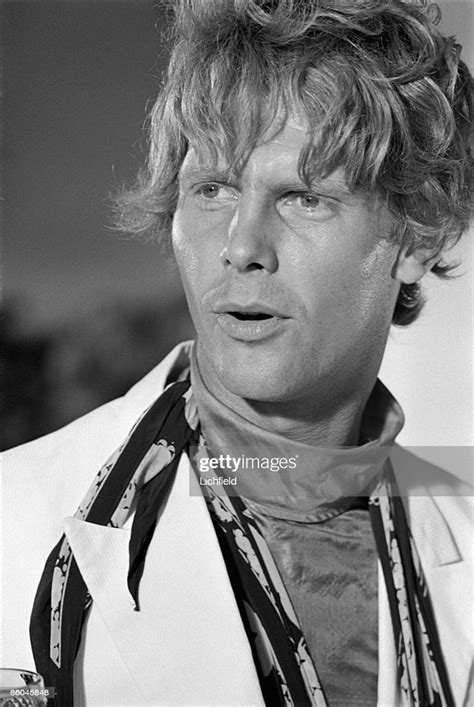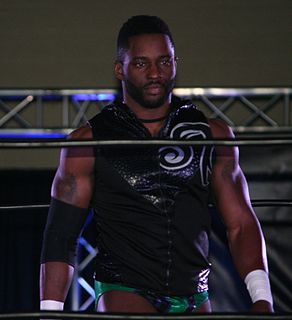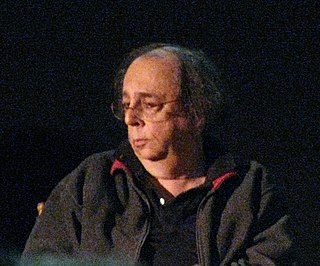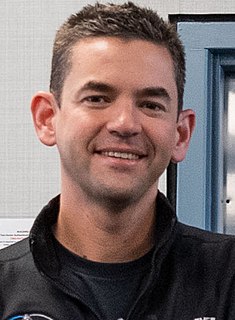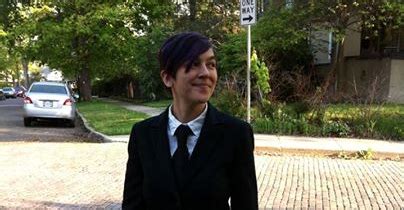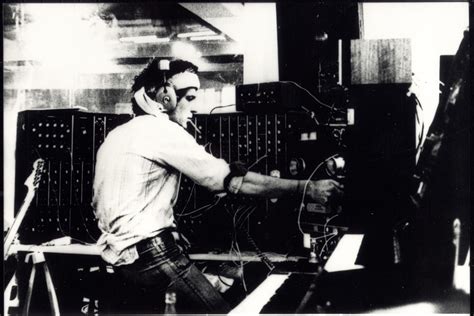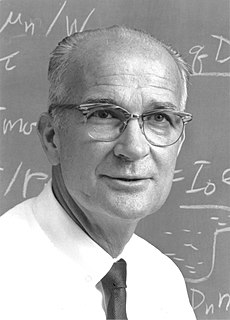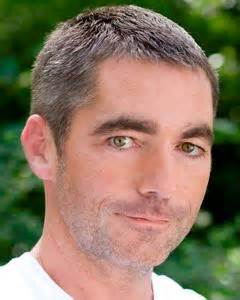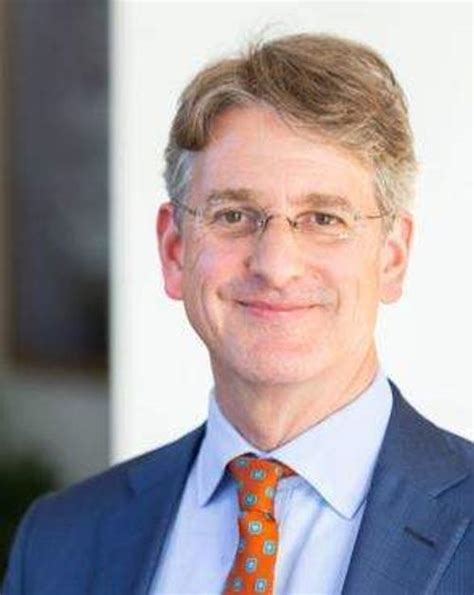Top 121 Overload Quotes & Sayings - Page 2
Explore popular Overload quotes.
Last updated on December 21, 2024.
If you do have to look at polls, you should do it no more than once every few days, to get a general sense of the state of the race. I've seen the work on information overload, which makes people depressed, stressed and freezes their brains. I know that checking the polls constantly is a recipe for self-deception and anxiety.
History teaches us, in no mistaken language, how often customs and practices, which were originated without lawful warrant, and opposed to the sound construction of the law, have come to overload and pervert it, as commentators on the text of Holy Scripture have established doctrines wholly at variance with its true spirit.
Which is worse, overload or underload? Luckily, I never had to choose. One or Pass on to where? Back into my cells to lurk like a virus waiting for the next opportunity? Out into the ether of the world to wait for the circumstances that would provoke its reappearance? Endogenous or exogenous, nature or nurture - it's the great mystery of mental illness.
As far as stimulus from the visual arts specifically, there is today in most of us a visual appetite that is hungry, that is acutely undernourished. One might go so far as to say that Protestants in particular suffer from a form of visual anorexia. It is not that there is a lack of visual stimuli, but rather a lack of wholesomeness of form and content amidst the all-pervasive sensory overload.
When I teach a new group of students, I introduce some yoga philosophy, but I don't overload them with information. Just enough so they understand the real tradition behind this ancient practice and that it's not a stretching class. Guys come in and they're a little nervous. I tell them that when they cross the threshold of the door, they're crossing to a different dimension. They're moving from an externally-oriented reality to an internally-oriented one.
I don't think we should have less information in the world. The information age has yielded great advances in medicine, agriculture, transportation and many other fields. But the problem is twofold. One, we are assaulted with more information than any one of us can handle. Two, beyond the overload, too much information often leads to bad decisions.
When hungry, do not throw yourself upon food - else you will overload your heart and body. Eat slowly, without avidity, with reflection to the glory of God, remembering the God Who feeds us, and above all His incorruptible food, His Body and Blood, that out of love He has given Himself to us in food and drink, remembering also the holy word of the Gospel.
I think we are definitely suffering from an information overload, but I believe that there is going to be better and better ways of organizing that information and processing it so that it will enhance your daily life. I just think that technology and information, it's overwhelming at the moment, but it's really going to make life better.
Normal people have an incredible lack of empathy. They have good emotional empathy, but they don't have much empathy for the autistic kid who is screaming at the baseball game because he can't stand the sensory overload. Or the autistic kid having a meltdown in the school cafeteria because there's too much stimulation.
I am a dreamer of words, of written words. I think I am reading; a word stops me. I leave the page. The syllables of the word begin to move around. Stressed accents begin to invert. The word abandons its meaning like an overload which is too heavy and prevents dreaming. Then words take on other meanings as if they had the right to be young. And the words wander away, looking in the nooks and crannies of vocabulary for new company, bad company.
The G20 was established as a forum to discuss, first and foremost, world economic issues. If we load it with... Of course, politics affects economic processes, this is obvious, but if we bring some squabbles, or not squabbles, rather, some matters that are really important but relate purely to world politics, we will overload the G20 agenda and instead of addressing such issues as finance, structural economic reforms, tax evasion and so forth, we will engage in endless debates concerning the Syrian crisis or some other global challenges, of which there are many, or the Middle East problem.
An entrepreneur... is a person of action, one who possesses an unnatural overload of two attributes: optimism and determination. Because entrepreneurs are optimistic, they don't see barriers; because they're determined, they never quit. Individuals who posses extreme amounts of optimism and determination get things done.
What’s next for technology and design? A lot less thinking about technology for technology’s sake, and a lot more thinking about design. Art humanizes technology and makes it understandable. Design is needed to make sense of information overload. It is why art and design will rise in importance during this century as we try to make sense of all the possibilities that digital technology now affords.
Predating the Internet and predating videos, you had an active imagination. You would hear sounds and then get mental pictures of what these sounds felt like to you. It engaged you and made you more invested in it. It made you want to get tickets to the show, buy the album, put the poster on the wall. Now it's sensory overload.
Just as one spoils the stomach by overfeeding and thereby impairs the whole body, so can one overload and choke the mind by giving it too much nourishment. For the more one reads the fewer are the traces left of what one has read; the mind is like a tablet that has been written over and over. Hence it is impossible to reflect; and it is only by reflection that one can assimilate what one has read. If one reads straight ahead without pondering over it later, what has been read does not take root, but is for the most part lost.
Digital warfare, in the Clausewitz definition as 'the continuation of policy by other means,' reached Western public consciousness via my own country, Estonia, in 2007 when our governmental, banking, and news media servers were hit with 'distributed denial-of-service attacks,' which is when hackers overload servers until they shut down.
A day or two before games, it's all carb overload: pasta, rice, potatoes, stuff like that. And, straight after the game, it's important to get as much carbohydrate on as possible. Refuel your body and get as much back in as you can. As it tails off a day or two later you, ease off on the carbs and go to more protein, vegetables, and salads.
I think it was Samuel Johnson who said, "There are two kinds of information in this world: that what you know and that what you know where to get." The tools help the latter, and that's what keeps us from going nuts. The sense of overload comes from the gap between that sudden jump in volume (of information) and the tools we have to make sense of it.
I come from a tradition of Western culture, in which the ideal (my ideal) was the complex, dense, and 'cathedral-like' structure of the highly educated and articulate personality--a man or woman who carried inside themselves a personally constructed and unique version of the entire heritage of the West. [But now] I see within us all (myself included) there placement of complex inner density with a new kind of self--evolving under the pressure of information overload and the technology of the 'instantly available.'
Gene told me the next day that I got it wrong. But he was not in a taxi, after an evening of total sensory overload, with the most beautiful woman in the world. I believed I did well. I detected the trick question. I wanted Rosie to like me, and I remembered her passionate statement about men treating women as objects. She was testing to see if I saw her as an object or as a person. Obviously the correct answer was the latter. ‘I haven’t really noticed,’ I told the most beautiful woman in the world.
I felt I had nothing more to say. Everything would have had to be a replay of the previous two or three albums, and that decided me to stop. What bothered me most was not playing guitar at all anymore. I felt I had no more contact with the instrument. It was just a piece of wood to me. I even thought music had definitely left me. After fourteen albums, there may be an overload phase, a sort of lassitude.
I believe C++ instills fear in programmers, fear that the interaction of some details causes unpredictable results. Its unmanageable complexity has spawned more fear-preventing tools than any other language, but the solution should have been to create and use a language that does not overload the whole goddamn human brain with irrelevant details.
We really are living in an age of information overload. Google estimates that there are 300 exabytes (300 followed by 18 zeros) of human-made information in the world today. Only four years ago there were just 30 exabytes. We've created more information in the past few years than in all of human history before us.
People associate hard work and overload with stress. But, like suffering, stress is complicated. Bad stress is stress that a system can't endure without suffering damage. It is unplanned, uncontrolled, allows no time for rest and recovery, and exceeds the capacity of the system to adjust to it. As the popular phrase suggests, it burns people out and, over time, it can decimate an entire workforce.
Were we to aim in every case at the kind of supreme beauty exemplified by Sta Maria della Salute, we should end with aesthetic overload. The clamorous masterpieces, jostling for attention side by side, would lose their distinctiveness, and the beauty of each of them would be at war with the beauty of the rest.
To invent without scruple a new principle to every new phenomenon, instead of adapting it to the old; to overload our hypothesis with a variety of this kind, are certain proofs that none of these principles is the just one, and that we only desire, by a number of falsehoods, to cover our ignorance of the truth.
In an age of information overload ... the last thing any of us needs is more information about God. We need the practice of incarnation, by which God saves the lives of those whose intellectual assent has turned them dry as dust, who have run frighteningly low on the Bread of Life, who are dying to know more God in their bodies. Not more about God. More God.
With blue vinyl-tile floor, pale-green wainscoating, pink walls, a yellow ceiling, and orange-and-white stork-patterned drapes, the expectant fathers' lounge churned with the negative energy of color overload. It would have served well as the nervous-making set for a nightmare about a children's-show host who led a secret life as an ax murderer. The chain-smoking clown didn't improve the ambience.





